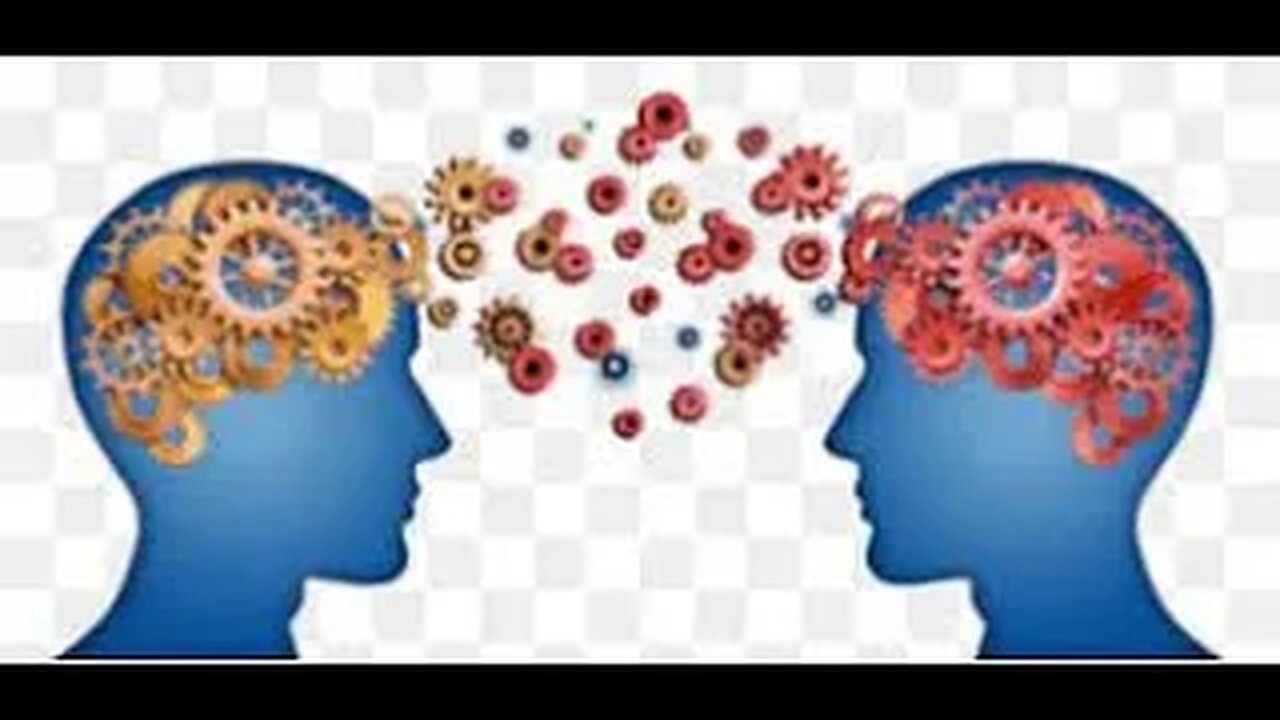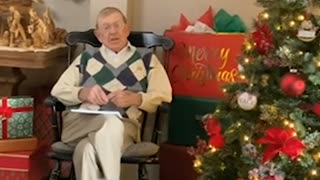Premium Only Content

"I Know That I Know Nothing" - Socrates | Why Logic and Reason Lead to Humility
"I know that I know nothing." - Socrates
This is my explanation of what I believe the Greek philosopher meant when he made this statement. I attempt to show how logic, the structure of reasoning, and science ultimately lead to this humble conclusion. I hope this helps. Much love to all.
CIA Gateway Process Analysis and Assessment: https://www.cia.gov/readingroom/docs/CIA-RDP96-00788R001700210016-5.pdf
Gateway Tapes: https://www.youtube.com/channel/UCnThV4kVc6r9RrVByICEf5g/videos
Resonance Experiment: https://www.youtube.com/watch?v=wvJAgrUBF4w
Quantum Non-Locality Explained: https://www.youtube.com/watch?v=XL9wWeEmQvo&t=180s
Quantum Entanglement explained simply: https://www.youtube.com/watch?v=TwaYHG7vGK4
Stanford Professor Russell Targ on Remote Viewing: https://www.youtube.com/watch?v=pVZ24r3y5_U
Mind Reality from scientist Travis Taylor: https://www.youtube.com/watch?v=JQNCUsHQYHE
Astronaut Edgar Mitchell Explains the Quantum Hologram that is the Universe: https://www.youtube.com/watch?v=EQuFtyruewo
Dr. Emoto Water Experiment: https://www.youtube.com/watch?v=1qQUFvufXp4
Monroe Institute Teacher, William Buhlman, discusses his 40+ years experience of teaching OBEs: https://www.youtube.com/watch?v=U9IPQ3XVKwU&t=3594s
Law of Vibration: https://www.youtube.com/watch?v=-ENj3vyFvKo
Epigenetics Explained: https://www.youtube.com/watch?v=VNvEAkZSBEU
Heart's Electro-Magnetic Field Explained: https://www.youtube.com/watch?v=1jdQ_Ueg1JA
Jhanas Explained: https://www.youtube.com/watch?v=cFEUjhLNZyU&t=786s
Neuroplasticity Explained: https://www.youtube.com/watch?v=kWIagHUqD8A
Stalking the Wild Pendulum Audiobook (Free): https://www.youtube.com/watch?v=mStUXBlK-3E&list=PL70N8vIGS1kmy7IleGunJXvlLV6-wuyW4
My Text: One should never feel superior to another. For there is no such thing as a “lesser being” as we are all truly equal. There are simply those lacking the necessary experiences to gain understanding. Lacking in experience does not equate to lacking in value as one has no control over the experiences they encounter. This would only make them ignorant (unaware of their lack of knowledge), and innocence is inherent in ignorance. How can one construct a proper argument without having the requisite knowledge to do so? It is truth and the connecting of premises that allow for sound deduction. This is the nature of logic. Furthermore, assessing the truth or falsity of a premise can only be done to the best of our methodologies and that currently is through keen and repeated observation ("science" as we call it). Therefore, anything we observe and build evidence for can still only amount to our best approximation (hence a scientific "theory" or "law"). In the end, however, we are continuously building arguments based on premises that are merely our best approximations. Even axiomatic systems must assume a part of themselves in order to prove themselves as Godel's incompleteness theorems showed us. This is because all systems we create are fundamentally arbitrary and merely represent our best attempt to model the universe around us. In our arrogance, we think our models are satisfactory and we (not all of us) then impose these new found beliefs on each other. We must deeply accept that, at the very best, we still only have a model and it may, in time, through development of new technologies, be shown to be false as new observations come to light. This is where science has gone astray, sadly, but the error is not with the methodology itself, it is with the of the men and women who wield their observations as if they are universal truths. Men and women who attempt to gain and retain wealth, reputation, social status, power, and resources, small and large, as incentivized by this capitalistic structure the world has adopted. They too, as evil as some of them may seem, are ignorant and therefore innocent. Even this argument is simply my best approximation on how to approach knowledge (epistemology) and that would be, always humbly. "I know that I know nothing." -Socrates
-
 2:12:46
2:12:46
Price of Reason
18 hours agoAmber Heard BACKS Blake Lively Lawsuit Against Justin Baldoni! Is Disney CEO Bob Iger in TROUBLE?
24.4K9 -
 1:01:17
1:01:17
The StoneZONE with Roger Stone
13 hours agoChristmas Edition: Why the Panama Canal is Part of the America First Agenda | The StoneZONE
94.5K33 -
 18:12:15
18:12:15
LFA TV
23 hours agoLFA TV CHRISTMAS EVE REPLAY
117K14 -
 4:33:48
4:33:48
tacetmort3m
1 day ago🔴 LIVE - THE ZONE KEEPS PULLING ME BACK - STALKER 2 - PART 15
65.1K12 -
 22:45
22:45
Brewzle
20 hours agoI Went Drinking In A Real Bourbon Castle
46.5K4 -
 48:36
48:36
PMG
1 day ago $3.77 earned"Parkland Parent Speaks Out On Kamala Harris Using Victims"
38K10 -
 4:06
4:06
The Lou Holtz Show
19 hours agoCoach Lou Holtz’s Heartfelt Christmas Message 🎄 | Family, Faith & Notre Dame Spirit 💚 #christmas
28.1K -
![ROSEANNE BARR - Her Journey, TRUMP, and the MAGA GOLDEN AGE! [INTERVIEW]](https://1a-1791.com/video/s8/1/M/m/B/2/MmB2v.0kob.1-small-ROSEANNE-BARR-Her-Journey-T.jpg) 51:35
51:35
Dr Steve Turley
1 day ago $20.43 earnedROSEANNE BARR - Her Journey, TRUMP, and the MAGA GOLDEN AGE! [INTERVIEW]
62.7K54 -
 57:38
57:38
The Tom Renz Show
17 hours agoMerry Christmas - The Tom Renz Show Christmas
97.6K17 -
 2:59:10
2:59:10
Wendy Bell Radio
1 day agoThe Bridge Too Far
174K307